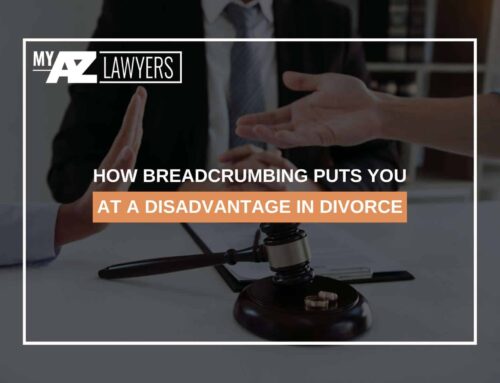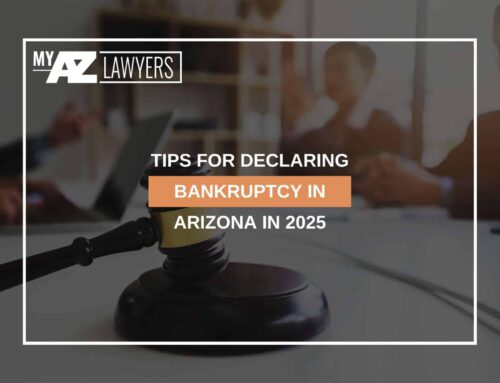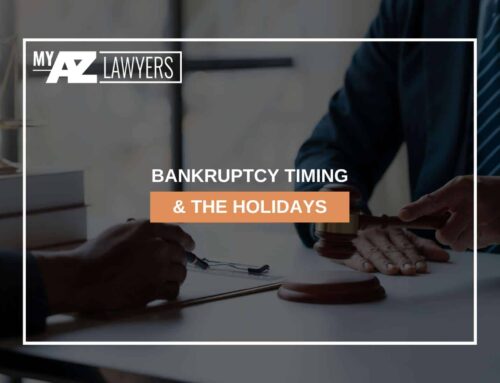Table Of Contents
What is a Chapter 13 Bankruptcy?
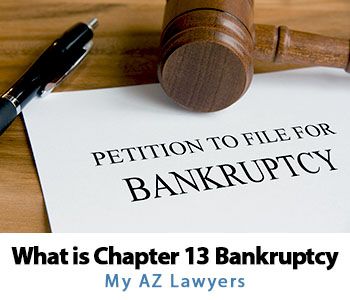
The greatest advantage of chapter 13 bankruptcy over chapter 7 is that generally you will be allowed to keep your home, vehicle and other personal possessions. Chapter 13 bankruptcy can allow you the opportunity to halt foreclosure proceedings on your home. Once chapter 13 bankruptcy is filed, foreclosure proceedings are stayed, however you should continue to pay your mortgage payments on time during the chapter 13 proceedings.
Additionally, once chapter 13 bankruptcy has been filed creditors will no longer be allowed to contact you directly, or to begin or continue other debt collection attempts. Another benefit of chapter 13 is that it may protect cosigners from being considered liable for your debt.
Chapter 13 bankruptcy is intended for individuals who have reasonable prospects of future income that will allow them to pay their debts after they have been renegotiated. It is similar to a loan consolidation in that you can reorganize and prolong debt repayment, possibly lowering the payments. Since there is very little debt forgiveness involved in chapter 13 bankruptcy, creditors are generally agreeable with the change in terms.
Arizona Chapter 13 Bankruptcy Attorneys
The bankruptcy laws involved in chapter 13 are complicated, and many have undergone key changes of late. Furthermore, although bankruptcy is under the jurisdiction of the federal courts, the bankruptcy laws of each state also play a substantial role in chapter 13 bankruptcy proceedings, thus making it extremely important to consult a well informed bankruptcy attorney in Mesa AZ.
An experienced bankruptcy attorney will guide you in choosing the most successful approach to your financial issues. Going through bankruptcy can be extremely stressful, and the guidance of an expert bankruptcy attorney can be invaluable.
When it’s time to choose a Mesa AZ bankruptcy lawyer, knowledge and experience are of critical importance. A mistake as simple as failure to fill out paperwork correctly can result in lost assets or possibly even criminal charges.
At My AZ Lawyers you will find attorneys who are highly experienced in their field of expertise. Additionally, all of our attorneys have received continuing education in their fields, which include bankruptcy, DUI, divorce and family law, and criminal law. This gives them an advantage over attorneys who are inexperienced or have only received a basic legal education. Choosing a bankruptcy attorney from my AZ Lawyers can make the entire process quicker, easier and more likely to achieve the best possible outcome.
In order to make our services available to as many clients as possible we provide evening and weekend appointments, low fees and payment plans. Contact our Arizona Chapter 13 Lawyers today for assistance on becoming debt free.
The Pros and Cons of Chapter 13 Bankruptcy in Arizona
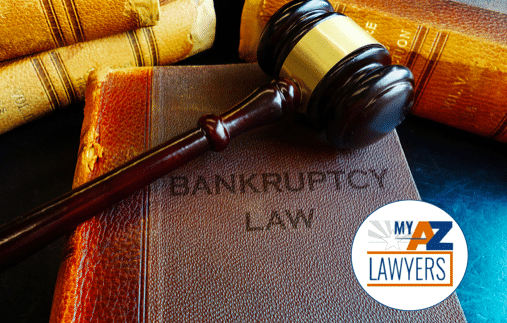
PROS of Filing Chapter 13 Bankruptcy in AZ
- -The Automatic Stay protects you from your creditors during your bankruptcy: When your petition is filed, the Automatic Stay prevents your creditors from repossessing your home or vehicle, and garnishing your wages or bank account. The stay remains active until your case is discharged or dismissed, or your trustee grants your creditor’s Motion for Relief from the Automatic Stay.
- -It’s easier to qualify for Chapter 13 with an income : Chapter 7 requires that you either make below your state’s median income, or pass the Means Test. The Means Test subtracts mandatory expenses from your income to prove you don’t have enough disposable income to pay your debts. Passing isn’t as simple as it sounds, and mistakes can result in your bankruptcy being dismissed. The ceilings in an AZ Chapter 13 are for how much debt you have, not how much money you make. In Chapter 13 Bankruptcy, you may have up to $419,275 in unsecured debts, and $1,257,850 in secured debts.
- -Catch up on past-due mortgage and vehicle payments: If you are behind on these monthly bills, your lender is probably threatening foreclosure or repossession. When you file Chapter 13, any past-due amount will be spread out over the 3 or 5 years that your payment plan lasts. You will be protected by the Automatic Stay during that period.
- -You may be able to discharge junior mortgages on your home: If you have one or more secondary mortgages on your home and you owe more on your home than what it’s worth, Chapter 13 allows the possibility of discharging those secondary mortgages.
- -Not all your debts have to be paid in full: Unsecured, nonpriority debts like credit cards, medical bills, personal loans, deficiency balances, and more, will be discharged at the end of a Chapter 13, even if they receive only partial payment.
- -You can keep your property: In Chapter 7, there are exemptions each state has for most types of assets. The person filing bankruptcy must assign an exemption to literally every item they own. Anything that isn’t protected by an exemption can be seized by the trustee and sold to pay creditors. The exemptions vary by state but are generally strict. For example, a paid in full vehicle would likely need to be at least a few years old to be protected. These exemptions don’t apply in an Arizona Chapter 13 bankruptcy filing.
- -There are procedures to take if you have a drastic change in circumstances during your payment plan:
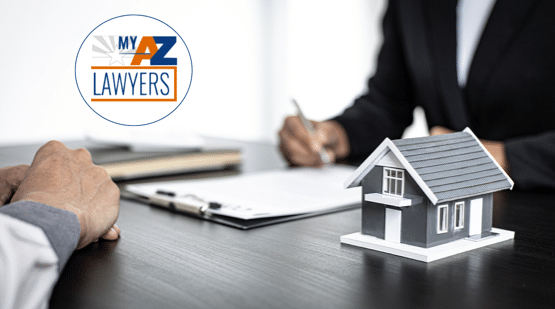
CONS of Filing an Arizona Chapter 13 Bankruptcy
- -Long term commitment: An AZ Chapter 13 bankruptcy lasts 3 or 5 years, depending on if you make less or more than your state’s median income. Almost all of your disposable income will go into your plan payments. Being in an active Chapter 13 Bankruptcy in Arizona can make things like buying a house, moving out of state, getting married, etc., more difficult.
- – In most cases, an Arizona Chapter 13 doesn’t discharge student loan debt: While some of your payment plan might go towards your student loans, they won’t be discharged along with the rest of your unsecured, non-priority debts at the end of your bankruptcy. Your student lender can’t pursue collection during your payment plan, but interest can still accrue.
- -The paperwork required for a Chapter 13 is complicated and time-consuming: Bankruptcy petitions are usually well over 50 pages long. You will need to collect a variety of your financial documents, like tax returns, pay stubs, bank statements, registrations to your vehicles, divorce and child support orders, and more. Your attorney will draft the petition for you, but you are the only one who can access many of those documents. Your attorney will likely have a questionnaire for you to fill out. Your attorney will likely meet with you to review the petition before filing it.
- -Chapter 13 could negatively affect your credit: An Arizona Chapter 13 bankruptcy remains on your credit for 7 years from the date of filing. You may see a decrease in your credit score after filing if you had decent credit prior to filing. However, since debts are repaid in Chapter 13, the effect won’t be as dramatic as it would in a Chapter 7. If you already have been defaulting on your payments for a while, Chapter 13 could actually improve your credit.
- -You will have to go to court: You will need to attend court at least twice in a Chapter 13- once for your payment plan confirmation, and again for your 341 Meeting of Creditors. Your trustee will be present at both, and your creditors may choose to attend your 341 Hearing. Your attorney will be present with you, but can’t appear on your behalf. However, these hearings are relatively shorter and less stressful than trials and other court procedures, and there is no jury present.
- -You would be better served hiring an experienced bankruptcy lawyer: Some people are able to have a Chapter 7 bankruptcy discharged with little to no help from an attorney. This isn’t the case for Chapter 13 bankruptcy. Less than 1% of cases filed without an attorney are discharged. Bankruptcy attorneys may add their representation fees to your payment plan, so don’t assume that you won’t be able to afford an attorney.
Seeking Assistance with an AZ Chapter 13 Bankruptcy?
If you need more help weighing the pros and cons of Chapter 13 bankruptcy, call to schedule a consultation with one of our bankruptcy experts. The consultation is free, and you will receive an estimate of what your monthly payments would be as well as a quote for our services. Our Arizona Chapter 13 Bankruptcy Attorneys have assisted on thousands of successfully filed bankruptcies throughout Arizona.
* This blog is written by a third party and nothing in this blog should be taken to constitute professional advice or a formal recommendation and we exclude all representations, warranties, legal liability or responsibility relating to its content. The information in this blog is for general information purposes only.
Published By:

Mesa Location:
1731 West Baseline Rd., Suite #100
Mesa, AZ 85202
Office: (480) 448-9800
Glendale Location:
20325 N 51st Avenue Suite #134, Building 5
Glendale, AZ 85308
Office: (602) 509-0955
Tucson Location:
2 East Congress St., Suite #900-6A
Tucson, AZ 85701
Office: (520) 441-1450
Avondale Location:
12725 W. Indian School Rd., Ste E, #101
Avondale, AZ 85392
Office: (623) 399-4222


